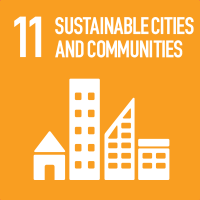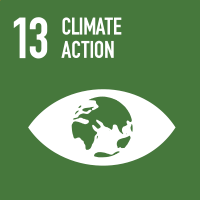Studying at the University of Verona
Here you can find information on the organisational aspects of the Programme, lecture timetables, learning activities and useful contact details for your time at the University, from enrolment to graduation.
Study Plan
This information is intended exclusively for students already enrolled in this course.If you are a new student interested in enrolling, you can find information about the course of study on the course page:
Laurea magistrale in Governance dell'emergenza - Enrollment from 2025/2026The Study Plan includes all modules, teaching and learning activities that each student will need to undertake during their time at the University.
Please select your Study Plan based on your enrollment year.
1° Year
| Modules | Credits | TAF | SSD |
|---|
1 module between the following1 module between the following1 module between the following2° Year It will be activated in the A.Y. 2025/2026
| Modules | Credits | TAF | SSD |
|---|
1 module between the following1 module between the following1 module between the following| Modules | Credits | TAF | SSD |
|---|
1 module between the following1 module between the following1 module between the following| Modules | Credits | TAF | SSD |
|---|
1 module between the following1 module between the following1 module between the following| Modules | Credits | TAF | SSD |
|---|
Legend | Type of training activity (TTA)
TAF (Type of Educational Activity) All courses and activities are classified into different types of educational activities, indicated by a letter.
Sociology of disaster (2024/2025)
Teaching code
4S009840
Teacher
Coordinator
Credits
6
Language
Italian
Scientific Disciplinary Sector (SSD)
SPS/08 - SOCIOLOGY OF CULTURE AND COMMUNICATION
Period
1° periodo lezioni - GEM dal Oct 1, 2024 al Dec 20, 2024.
Courses Single
Authorized
Learning objectives
A civil defence worker with sufficient professional training should have not only technical capabilities but also cultural and sociological awareness in order to deal with the more strictly social consequences of disasters as well as the practical ones. The former are less visible, therefore tend to be underestimated although they are the least simple to deal with. On the other hand, however, they are also those which plant the most lasting consequences in the humus of the social group and those which are most at risk of leading to crisis. Students on this course will be expected to be familiar with these issues and their more cultural and social implications and to demonstrate their ability to discuss them critically and apply them to specific contexts, using the case studies which will be discussed during the course.
Program
The course objectives are essentially structured into two modules: (1) Introduction to the main disciplinary and theoretical perspectives; introduction to the principal themes and basic concepts of social disaster research; (2) Analysis of several representative thematic branches in sociology and anthropology; case studies from both the Italian and international contexts; monographic section on the post-earthquake in Central Italy (2016-2017).
One of the primary aspects of research conducted in social sciences on disasters, beginning in the early 20th century, concerns the questioning of a technocentric approach. It has become increasingly evident that to understand the effects of a disaster, it is necessary to integrate the study of the physical component (the impact and its "material" effects) with an understanding of the political, historical, social, and semiotic factors. The socio-anthropological issue of power and the dynamics of vulnerability becomes crucial in disaster studies, particularly through a connectionist and processual vision that highlights the differential impacts and processes of social and cultural transformation following a disaster. Emancipating the study of disasters from the notion of natural phenomena described, depending on the case, as inevitable or random, powerful or vindictive, has the advantage, among other things, of providing valuable tools for analyzing a contemporary world increasingly marked by socio-environmental transformations and conflicts.
In addition to introducing the key categories of social disaster research, the course aims to put into practice, through class exercises and group work, the operational tools for analyzing public and media discourse, a particularly interesting and decisive area in understanding the social effects of a disaster.
Bibliography
Didactic methods
The course is structured into two-hour sessions, alternating between lectures and discussion/debate moments with students, also featuring the participation of external speakers.
The lectures will be held in person. Video recordings and any supplementary and supportive teaching materials will be made available to students enrolled in the PA 110 e lode protocol, as well as, according to university guidelines, to students in particular situations of vulnerability, those with disabilities, or those affected by learning disorders (following notification and coordination with the U.O. Inclusion).
Learning assessment procedures
Learning assessment is conducted through an individual oral examination based on the exam syllabus. The interview aims to evaluate both the student's understanding of the course content and their ability to express themselves, including mastery of specialized language, argumentation skills, and the application of acquired knowledge.
Attending students may choose to produce a paper, which will be the subject of work, discussion, and ultimately presentation during class hours. The evaluation of these presentations will count as a partial grade towards the oral exam.
Evaluation criteria
The final evaluation consists of verifying that the student has acquired:
The course content (with specific reference to the recommended texts);
The ability to critically and originally engage with the proposed content, producing a synthesis between knowledge and personal re-elaboration;
The ability to express oneself orally in a logically coherent manner, appropriate to the required depth of analysis;
The ability to synthesize their thoughts in oral form.
Exam language
italiano


